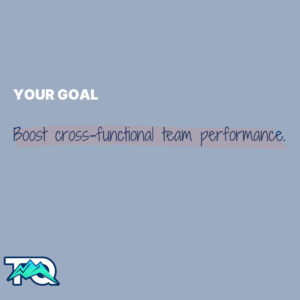In any interview, the best way to express an interest in potential candidates is by showing them you’re prepared for the scheduled time: in your demeanor, the content of your questions, and your physical presentation.

Of course, the answer is no: no one’s time is more important than anyone else’s. Why, then, is it common for hiring managers to require all questions by the interviewee be held until the end of the interview?
Why show up to a meeting without having a list of thoughtful questions based on the candidate’s background?
Why show up late; eating a snack; allow zero time for questions?
As the candidate, how would you feel if any or all of these were the case for your interview? If someone told you they were only interviewing you out of respect for the person who referred you? (Full transparency – these are experiences I had with hiring managers who were interviewing me as the candidate.)
Having interviewed hundreds of individuals throughout my 15+ year career, I have honed my process to a flow that feels conversational in nature, while also checking all the important boxes (and then some). An interview is quite simply the beginning of a new relationship. As the interviewer, you set the pace and tone of the meeting.
I interview candidates for culture fit, for potential (aka transferable skills), and for (baseline) technical skills. Everyone is treated with respect and kindness, and their time invested in meeting with me is something I place special attention on verbally acknowledging.
Interviews are conversations and, when we treat them as such, everyone involved benefits.
The hiring manager and the candidate experience a sample of the working relationship and can make an informed decision on whether it’s a match. Interviewers still receive the information they seek (hopefully, following behavioral-based interviewing practices, this includes real examples of scenarios the individual describes in detail).
The same is true when interviewing candidates who are offering their time and skills pro bono. I still follow these guidelines, and, there’s more to consider.
I believe that any individual who is willing to offer their expertise at no cost should be treated as a partner and potential client. Not only to uphold your (and the organization’s) brand, but also as a sign of respect for this individual who has committed to giving free advice and expertise when they could be spending that time in so many other ways.
When interviewing a pro bono consultant for a specific project, the platforms I use to find talent require the project be scoped and posted. I’m then naturally prepared to speak to specifics of the project during the interview, including that any scope creep will be discussed and managed according to the consultant’s interest and availability. How do you manage scope creep for pro bono consultants?
I offer you this checklist and flow for your own interviews with pro bono candidates:
Prepare, prepare, prepare
(aka Before the Interview)
Create an Interview Scorecard (template)
- View / download below a basic template I’ve created for you
- Build in a few customized questions based on the individual’s past experiences
- Link in candidate profiles (LinkedIn; and/or the platform used to find them) for quick reference
Ensure your Supervisor and/or the Hiring team is aligned with the scorecard and customized questions
During the Interview
Show up on time (5 minutes early is better)
- Have nothing more than water on your desk (I beg you, don’t be eating)
Welcome the candidate:
- Emphasize that your time together is a two-way conversation
- For pro bono candidates – address the fact that their background and skill set appear to be a great match, and share why you are appreciative of their investment in having this interview with you (e.g. “Several amazing candidates applied, and I want to be sure I give each person an opportunity to decide if this is a match.)
- Give them a high-level view of your role and list 2-3 projects or major tasks currently on your plate
Discuss response time expectations and alignment (e.g. “Understanding that this isn’t your day job, I’d like to check in on communicating with one another. I anticipate always responding at the very latest within 2 business days, and I’m looking for partnership on that with the consultant who works with us. Would this work for you?”)
Conduct the interview following your scorecard (and take copious notes!)
At the close, vocalize your gratitude for the time and conversation.
- Ask for feedback (e.g. I’m curious how you feel about our time together today. What ideas if any do you think would make this a better experience?”
- Thank them for any feedback
- Share next steps (e.g. “I have a few more candidates to meet. I anticipate getting back to you by X day at the latest.”)
- Especially for Pro Bono consultants: ask for their communication channel preferences (i.e. via the pro bono consulting platform or direct and confirm those details)
After the Interview
Show them who you are in your follow-up email
- Say thank you again
- Reiterate your message on next steps
- Include a personalized note
- Include a link to your LinkedIn profile and mention that you’ve sent a request to connect via that platform
Send an invite to connect on LinkedIn
To sum up: communicate at every opportunity. Say what you’re going to do, and then do it. And always say thank you. Over and over again. To each and every candidate, regardless of your choice to work with them.
Would you do something different than what I’ve shared? What works best for you?
What’s your flow to gain approval from a supervisor or hiring team on your recommended choice?


